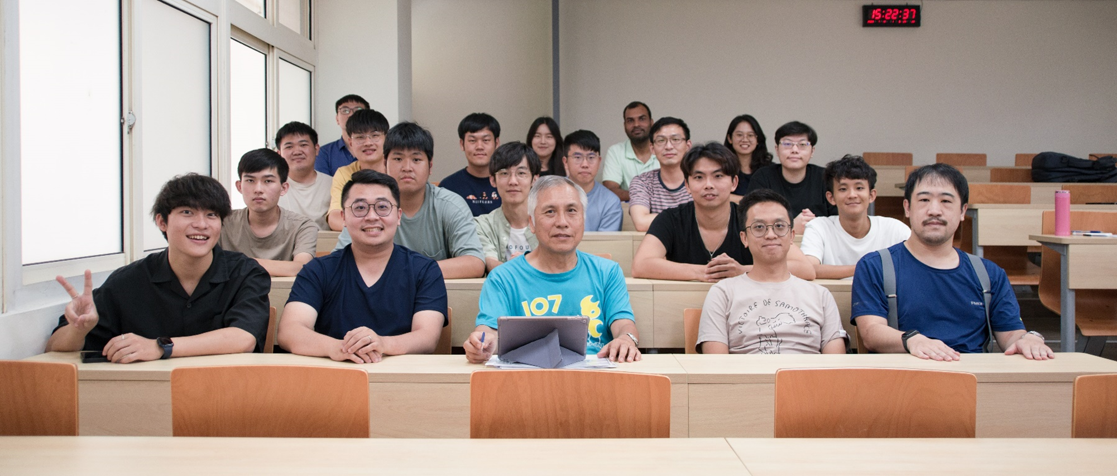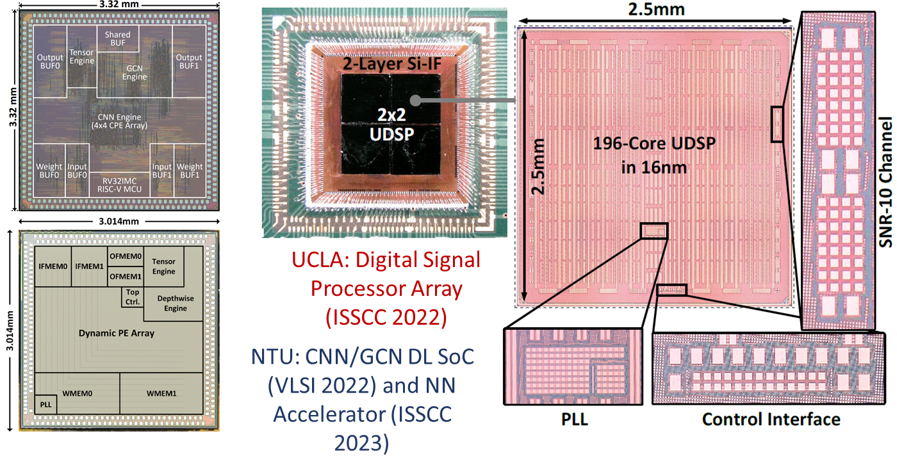In the year of 2022-2023, NTU secured grants totaling NT$350 million from various semiconductor research initiatives under the Taiwan National Science and Technology Council (NSTC). Notably, in 2023, the Taiwan NSTC and the US National Science Foundation (NSF) jointly launched the Advanced Chip Engineering Design and Fabrication (ACED Fab) program, for the years 2023 to 2026. Among the six projects awarded to Taiwan-US joint teams in June 2023, NTU received four.
In these four projects:
- Professor Chia-Hsiang Yang is collaborating with the University of California-Los Angeles (UCLA) to develop an artificial intelligence and machine learning computation chip based on a Runtime Reconfigurable Array (RTRA) architecture.
- Professor Chee-Wee Liu from GIEE is partnering with Stanford University to develop in-memory computing chips based on magnetoresistive random access memory (MRAM). Along with the development of computer-aided software tools for design and verification of circuits, the project aims to enhance neural network computation performance and reduce energy consumption. Post-processing will involve collaboration with Taiwan Semiconductor Research Institute of the National Applied Research Laboratories, Taiwan.
- Professor Huei Wang is collaborating with the University of California-Davis (UC-Davis) to develop a miniaturized, low-noise, infrared spectroscopy system based on CMOS-MEMS technology operating at room temperature. The system is expected to surpass current commercial Fourier-transform infrared (FTIR) systems and find applications in cutting-edge cancer detection.
- Professor Chun-Hsing Li is working with the University of California-Berkeley (UC-Berkeley) to realize a lower-cost, energy-efficient next-generation 240 GHz radar system, which will offer higher angular resolution and larger Multiple Input Multiple Output (MIMO) arrays for full imaging, 6G wireless communication, autonomous vehicles, 3D sensing, and more
These collaborative efforts showcase win-win partnerships that combine Taiwan's advanced semiconductor technology with the US’s strengths in architecture and software.
NTU has played a pivotal role and remains a crucial talent resource for Taiwan’s semiconductor industry. The university is committed to promoting more international collaborations and providing a platform to attract international experts for frontier semiconductor research collaboration and international students to learn the most advanced semiconductor technologies.

Professor Huei Wang and his team at National Taiwan University. Professor Wang's team possesses extensive experience in the field of microwave and millimeter-wave circuit design.

Professor Chia-Hsiang Yang, from the Graduate Institute of Electronics Engineering, collaborates with the University of California-Los Angeles (UCLA) to develop an artificial intelligence and machine learning computation chip based on a Runtime Reconfigurable Array (RTRA) architecture.
